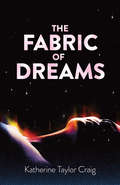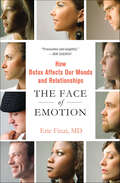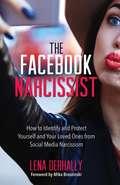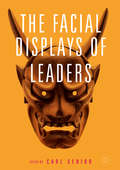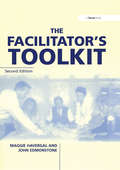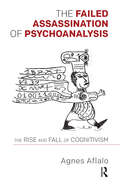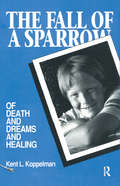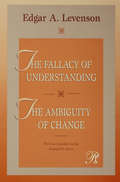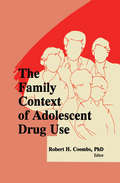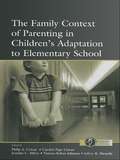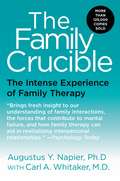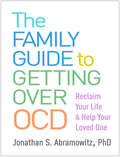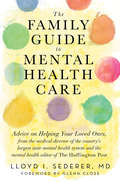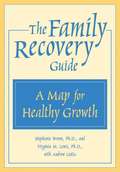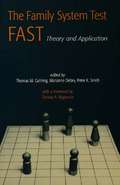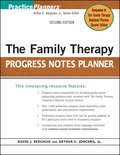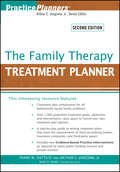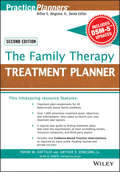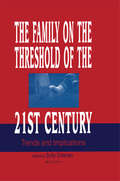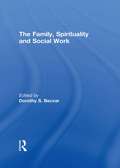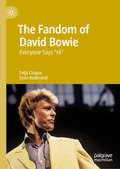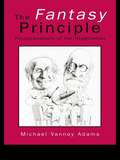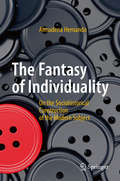- Table View
- List View
The Fabric of Dreams: Dream Lore and Dream Interpretation, Ancient and Modern
by Katherine Taylor CraigScience, history, symbolism, and collective wisdom combine for a fascinating blend of scholarship and spirituality in this exploration of ancient and modern dream lore and dream interpretation. Originally published in 1918, The Fabric of Dreams compiles dream-related beliefs and practices from a broad range of sources to offer a comprehensive and objective view of the subject. Readers are provided with a wealth of fact and fancy from which to arrive at their own conclusions. Author Katherine Taylor Craig, an expert on occult subjects, begins by drawing upon the literature and history of antiquity as well as medieval civilizations. In addition to age-old folklore, including methods of ancient divination, she cites scientists and psychiatrists such as Sigmund Freud, Carl Jung, Morton Prince, and Havelock Ellis, discussing and comparing their theories and explanations of dream phenomena. The teachings and observations of mystics such as William Blake and Madame Blavatsky receive their due, along with reflections from modern writers in the fields of literature, science, religion, art, and philosophy. Themes include dreams that have come true, dream analysis and interpretation, and the role of narcotics in inducing dream states. The book concludes with a guide to dream interpretation using the art of geomancy.
The Face Of Social Suffering: The Life History Of A Street Drug Addict
by Merrill Singer"This research-based, theory-driven account of the changing underground world of drug use and associated health effects covers the essential ground in a brisk, authoritative fashion. After a thorough outline of the nature and history of drug use dynamics, the author assesses the role of youth in new drug use practices, the impact of illicit drug distribution and the War on Drugs, and the public health risks of new trends in drug use behavior. " "The volume provides an up-close account of the social worlds of drug sellers and users and the processes of change in patterns of drug consumption. Additionally, it considers mechanisms for effective public health response to emergent health risks associated with changing drug use patterns. Because Merrill Singer carefully explains all technological terms, uses clarifying examples, and avoids jargon, readers will walk away from this volume with a deeper grasp of this social problem; with appreciation for how change figures into drug use practices; and with knowledge of key social, cultural, political-economic, criminal justice, and health factors. "--BOOK JACKET.
The Face of Emotion: How Botox Affects Our Moods and Relationships
by Eric FinziWilliam Shakespeare famously wrote that "a face is like a book," and common wisdom has it that our faces reveal our deep-seated emotions. But what if the reverse were also true? What if our facial expressions set our moods instead of revealing them? What if there were actual science to support the exhortation, "smile, be happy?" Dermatologic surgeon Eric Finzi has been studying that question for nearly two decades, and in this ground breaking book he marshals evidence suggesting that our facial expressions are not secondary to, but rather a central driving force of, our emotions. Based on clinical experience and original research, Dr. Finzi shows how changing a person's face not only affects their relationships with others but also with themselves. In his studies using Botox, he has shown how inhibiting the frown of clinically depressed patients leads many to experience relief. This work is a dramatic departure from the neuroscience-based thinking on emotions that tends to view emotions solely as the result of neurotransmitters in the brain. Part absorbing medical narrative, part think piece on the nature of emotion, this is a bold call for us to rethink the causes of unhappiness.
The Facebook Narcissist: How to Identify and Protect Yourself and Your Loved Ones from Social Media Narcissism
by Lena DerhallyA comprehensive guide for understanding how narcissism on social media impacts our mental health, how to protect ourselves and our children from those affects as well as from narcissists, and how to use social media more mindfully.The Facebook Narcissist is the first book dedicated to exploring the relationship between narcissism and social media. Lena Derhally, a licensed psychotherapist certified in Imago therapy, delves into how social media enhances individual and cultural narcissism and how it may create or exacerbate toxic narcissistic tendencies in people who use it. Using her clinical expertise, along with scientific research and interviews with other experts in the field, she thoroughly examines: how narcissism on social media contributes to false narratives and ruptures relationships; how to identify a narcissist on social media (including how to spot the more subtle sub-types of narcissist, such as the covert, communal, and collective narcissist); how narcissism relates to the &“influencer&” and celebrity culture; narcissism and cyberbullying, cyberstalking, trolling, and victim blaming on social media; narcissism related to racism and politics on social media; the ways social media can create a problem of narcissism in children as they grow up, the implications of "sharenting"; and more. Readers will discover case studies and real examples of narcissists and how they present on social media. Derhally&’s expertise in cultivating healthy, fulfilling, and connected relationships helps guide readers to take a deeper look at their behaviors on social media and of those around them. At the end of each chapter, she gives practical tips and takeaways for navigating narcissism online. Since abandoning our devices is impractical and not likely, this book will help readers understand how to use social media in a balanced way that inspires fulfillment and connection instead of the entitlement, attention-seeking, and lack of empathy that is at the heart of narcissism. Derhally also instructs readers on how they may use social media for good, and as a tool for positive social change. Social media is here to stay, but with education and awareness on how it makes us and the world more narcissistic, we can change the narrative and focus on the ways in which social media can be positive, and even improve the world for the better.
The Facial Displays of Leaders
by Carl SeniorThis book provides a multifaceted analysis of how the human face drives many of our most important social behaviors. People perceive the identities, genders, and attractiveness of others from the many different faces they see every day. There has been great deal of research on the psychology, neuropsychology and neuroscience of how these perceptions are formed. However the facial displays of leadership, with their almost ubiquitous role in our social lives, remain largely unexplored. Carl Senior argues that perhaps now more than ever, it is crucial to understand how facial displays communicate leadership abilities. This book brings together perspectives from a range of international experts across a variety of fields including social psychology, organisational sciences and the study of primates, with the aim to further our understanding of this fundamental social force. Scholars and professionals, as well as anyone interested in learning more about how the face is used to drive our perception of leadership, will find this book of great interest.
The Facilitator's Toolkit
by John Edmonstone Maggie HavergalMaggie Havergal and John Edmonstone's Facilitator's Toolkit provides your organization with a resource on which every manager can draw. The authors explain the basic skills of facilitation, how and when to use them (and not to use them). The main part of the manual then offers a Toolkit of almost 100 tools for facilitation; tools for organizing groups; tools for strategic thinking; tools for problem solving; diagnostic tools; tools for managing people, including other facilitators; tools for decision making; tools for planning; tools for managing conflict and dealing with problems, situations or people.
The Failed Assassination of Psychoanalysis: The Rise and Fall of Cognitivism
by Agnes AflaloIt can happen that a law incurs the wrath of the very people it set out to protect. This is what happened in France at the end of 2003 with the Accoyer Amendment, a Bill that intended to regulate the exercise of psychotherapies even at the cost of the disappearance of psychoanalysis itself. The public that this law was supposed to protect thus ran the risk of finding themselves stripped of certain freedoms that democracy usually guarantees. How had it become possible to reach such a point? This is what this book sets out to examine. Evaluation and cognitive-behavioural scientism, which have been progressively infiltrating different forms of knowledge with destructive effect, undoubtedly played a major role. And then, the International Psychoanalytical Association, despite having been founded by Freud to protect his invention, started to endorse the forced cognitivisation of psychoanalysis. Meanwhile, psychiatry slid back into its nineteenth century hygienic obscurantism and its new recruit, epidemiology, began playing host to racialist discourses.
The Fall of a Sparrow: Of Death and Dreams and Healing
by Kent L KoppelmanIn this book, the author describes his attempt to create a meaningful and satisfying grieving process following the death of his 19 year old son, Jason, in a car accident. The narrative confronts the harsh reality of death from the hospital to the cemetery and the many mundane yet painful decisions that must be made. For those who must cope with an unexpected death, the grieving process becomes a struggle to express one's love and at the same time say goodbye.
The Fallacy of Understanding & The Ambiguity of Change (Psychoanalysis in a New Key Book Series)
by Edgar A. LevensonIn The Fallacy of Understanding (1972) and The Ambiguity of Change (1983), Edgar Levenson elaborated the many ways in which the psychoanalyst and the patient interact - unconsciously, continuously, inevitably. For Levenson, it was impossible for the analyst not to interact with the patient, and the therapeutic power of analysis derived from the analyst's ability to step back from the interactive embroilment (and the mutual enactments to which it led) and to reflect with the patient on what each was doing to, and with, the other. Invariably, Levenson found, the analyst-analysand interaction reprised patterns of experience that typified the analysand's early family relationships. The reconceptualization of the analyst-analysand relationship and of the manner in which the analytic process unfolded would become foundational to contemporary interpersonal and relational approaches to psychoanalysis and psychotherapy. But Levenson's perspective was revolutionary at the time of its initial formulation in The Fallacy of Understanding and remained so at the time of its fuller elaboration in The Ambiguity of Change. The Analytic Press is pleased to reprint within the Psychoanalysis in a New Key Book Beries two works that have proven influential in the realignment of psychoanalytic thought and practice away from Freudian drive theory and toward a contemporary appreciation of clinical process in its interactive, enactive, and participatory dimensions. Newly introduced by series editor Donnel Stern, The Fallacy of Understanding and The Ambiguity of Change are richly deserving of the designation "contemporary classics" of psychoanalysis.
The Family Context of Adolescent Drug Use
by Robert H. CoombsHere is an essential volume for educators, social workers, health care professionals, and parents who are frustrated by the consuming power of drugs over the lives of young people and looking for answers to this enormous problem. In this unique and highly practical volume, experts concentrate on the family--the foundation of mental health and social control--as the most positive force in the prevention of adolescent drug use. Despite the “war on drugs,” young people in large numbers continue to use substances. This instructive guide focuses on educating and strengthening families--which makes stronger children who are less likely to use drugs--instead of the traditional efforts based on rehabilitation instead of prevention. It offers instructive background information about societal forces that affect families and make it difficult to raise drug-free youngsters. Family differences are discussed, such as family structure, parenting styles, ethnic and cultural characteristics. Contributors thoroughly examine practical, effective interventions--at home, at school, and with peers--that are positive rather than negative, instructional rather than punitive, and preventive instead of remedial.
The Family Context of Parenting in Children's Adaptation to Elementary School (Monographs in Parenting Series)
by Philip A. Cowan Carolyn Pape Cowan Jennifer C. Ablow Vanessa Kahen Johnson Jeffrey R. MeaselleThe Family Context of Parenting in Children's Adaptation to Elementary School is a result of a longitudinal prevention study of 100 families begun the year before their first children entered kindergarten. Each family went through an assessment and then a subset was randomly chosen for group intervention. The children in both groups were then studied as they progressed through kindergarten and first grade to assess the quality of their adaptation to the school environment.The text focuses on how parent-child relationships are only one determinant of a child's academic competence, social competence, and behavior. Rather, these relationships must be understood in the context of the role they play within the family as a system. It also addresses the recent challenges to claims about the impact of parents on their children's development.The book sheds additional light on family influences within the larger social environment as a key determinant of the quality of children's adjustment to schooling. It appeals to scientists, professionals, and parents alike.
The Family Crucible: The Intense Experience Of Family Therapy
by Augustus Y. NapierThis extraordinary book presents scenarios of one family's therapy experience and explains what underlies each encounter. You will discover the general patterns that are common to all families-stress, polarization and escalation, scapegoating, triangulation, blaming, and the diffusion of identity--and you will gain a vivid understanding of the intriguing field of family therapy.
The Family Guide to Getting Over OCD: Reclaim Your Life and Help Your Loved One
by Jonathan S. AbramowitzWhen a loved one has OCD, it's a constant struggle. It hurts to see your spouse so anxious or your teen spending so much time alone. You've tried logic, reassurance, even accommodating endless rituals--but, too often, these well-meaning attempts actually make OCD worse. Psychologist Jonathan Abramowitz has worked with countless families affected by OCD, and he understands the strain. He also knows you can turn things around. Grounded in state-of-the-art treatment research, this compassionate guide helps you change your own behavior to support your loved one's recovery. By gently but firmly encouraging the person you care about to face their fears, you can stop being controlled by the disorder, disentangle yourself from unhealthy patterns, and see your whole family grow more confident and hopeful. Vivid stories, dos and don'ts, and practical tools (which you can download and print for repeated use) help you follow the step-by-step strategies in this life-changing book.
The Family Guide to Mental Health Care
by Glenn Close Lloyd I. SedererExpert advice from the medical director of the country's largest state mental health system and the mental health editor of The Huffington Post. More than fifty million people a year are diagnosed with some form of mental illness. It spares no sex, race, age, ethnicity, or income level. And left untreated, mental disorders can devastate our families and communities. Family members and friends are often the first to realize when someone has a problem, but it is hard to know how to help or where to turn. Our mental health "system" can feel like a bewildering and frustrating maze. How can you tell that someone has a mental illness? What are the first and best steps for you to take? Where do you go to find the right care? The Family Guide to Mental Health Care is the first comprehensive print resource for the millions of people who have loved ones suffering from some kind of mental illness. In this book, families can find the answers to their most urgent questions. What medications are helpful and are some as dangerous as I think? Is there a way to navigate privacy laws so I can discuss my adult daughter's treatment with her doctor? Is my teenager experiencing typical adolescent distress or an illness? From understanding depression, bipolar illness and anxiety to eating and traumatic disorders, schizophrenia, and much more, readers will learn what to do and how to help. Real-life scenarios and authoritative information are written in a compassionate, reader-friendly way, including checklists to bring to a doctor's appointment so you can ask the right questions. For readers who fear they will never see the light at the end of the tunnel, this book gives hope and a path forward. As one of the nation's leading voices on quality care in mental health, Dr. Lloyd Sederer has played a singular role in advancing services for those with mental illness. Now, the wealth of his expertise and clear guidance is at your disposal. From the first signs of a problem to sorting through the variety of treatment options, you and your family will be able to walk into a doctor's office know what to do and what to ask.
The Family Recovery Guide: A Map For Healthy Growth
by Stephanie Brown Virginia M. Lewis Andrew Liotta Jane E. LewisWritten by two specialists and based on the latest research, this book teaches family members how to sustain their relationships during a loved one's recovery from addiction and offers families specific tasks for each stage of recovery, helpful progress charts, and practical exercises.
The Family Systems Test (FAST): Theory and Application
by Peter K. Smith Thomas M. Gehring Marianne DebryThe Family System Test (FAST), developed by Thomas M. Gehring, is an important new tool for investigating family relations. Based on the structural-systemic theory of families, it is a figural technique for representing emotional bonds (cohesion) and hierarchical structures in the family or similar social systems. In this unique volume, the editors draw on current theory and research in family or similar social systems together with a variety of empirical studies that have used the FAST, to provide a comprehensive overview and assessment of the test and its use in various clinical research contexts.The book is divided into four sections, each focusing on a different aspect of the FAST. Part 1 describes the concepts and psychometric properties of the FAST within the context of theoretically and empirically relevant aspects of the field of family psychology as a whole. Special emphasis is given to systematic-structural approaches to assessing individual and family functioning. Part II focuses on the use of the FAST in developmental research. For example, the the FAST has been used to show how family constructs are influenced by age, type of family and situation. Part III deals with cross-cultural issues and compares the interpersonal constructs of Japanese and Chinese families to Western families. Finally, Part IV addresses the applications of the FAST in clinical setting - in diagnosis of biopsychosocial problems and planning and evaluation of clinical interventions.The result is a book that helps to bridge the gap between theory, practice and research. It will be essential reading for users of the FAST and all clinicians and researchers who work in family relations and development.
The Family Therapy Progress Notes Planner
by David J. Berghuis Arthur E. JongsmaThe Bestselling treatment planning system for mental health professionals The Family Therapy Progress Notes Planner, Second Edition contains complete prewritten session and patient presentation descriptions for each behavioral problem in The Family Therapy Treatment Planner, Second Edition. The prewritten progress notes can be easily and quickly adapted to fit a particular client need or treatment situation. Saves you hours of time-consuming paperwork, yet offers the freedom to develop customized progress notes Organized around 40 behaviorally based presenting problems, including family-of-origin interference, depression in family members, divorce, financial conflict, adolescent and parent hostility, friction within blended families, traumatic life events, and dependency issues Features over 1,000 prewritten progress notes (summarizing patient presentation, themes of session, and treatment delivered) Provides an array of treatment approaches that correspond with the behavioral problems and DSM-IV-TRTM diagnostic categories in The Family Therapy Treatment Planner, Second Edition Offers sample progress notes that conform to the requirements of most third-party payors and accrediting agencies, including CARF, The Joint Commission (TJC), COA, and the NCQA Presents new and updated information on the role of evidence-based practice in progress notes writing and the special status of progress notes under HIPAA
The Family Therapy Treatment Planner
by Davis Arthur E. Dattilio Frank M. Jongsma Sean D.The Family Therapy Treatment Planner, Second Edition provides all the elements necessary to quickly and easily develop formal treatment plans that satisfy the demands of HMOs, managed care companies, third-party payors, and state and federal agencies. New edition features empirically supported, evidence-based treatment interventions Organized around 40 main presenting problems including child/parent conflicts, depression, abuse, death and loss issues, blended family problems, and loss of family cohesion Over 1,000 prewritten treatment goals, objectives, and interventions-plus space to record your own treatment plan options Easy-to-use reference format helps locate treatment plan components by behavioral problem Designed to correspond with The Family Therapy Progress Notes Planner, Second Edition and the Brief Family Therapy Homework Planner, Second Edition Includes a sample treatment plan that conforms to the requirements of most third-party payors and accrediting agencies including CARF, The Joint Commission (TJC), COA, and the NCQA
The Family Therapy Treatment Planner, with DSM-5 Updates, 2nd Edition (PracticePlanners)
by Arthur E. Jongsma Jr. Sean D. Davis Frank M. DattilioThis timesaving resource features: Treatment plan components for 40 behaviorally based presenting problems Over 1,000 prewritten treatment goals, objectives, and interventions—plus space to record your own treatment plan options A step-by-step guide to writing treatment plans that meet the requirements of most accrediting bodies, insurance companies, and third-party payors Includes new Evidence-Based Practice Interventions as required by many public funding sources and private insurers PracticePlanners® THE BESTSELLING TREATMENT PLANNING SYSTEM FOR MENTAL HEALTH PROFESSIONALS The Family Therapy Treatment Planner, Second Edition provides all the elements necessary to quickly and easily develop formal treatment plans that satisfy the demands of HMOs, managed care companies, third-party payors, and state and federal agencies. New edition features empirically supported, evidence-based treatment interventions Organized around 40 main presenting problems including child/parent conflicts, depression, abuse, death and loss issues, blended family problems, and loss of family cohesion Over 1,000 prewritten treatment goals, objectives, and interventions—plus space to record your own treatment plan options Easy-to-use reference format helps locate treatment plan components by behavioral problem Designed to correspond with The Family Therapy Progress Notes Planner, Second Edition and the Brief Family Therapy Homework Planner, Second Edition Includes a sample treatment plan that conforms to the requirements of most third-party payors and accrediting agencies including CARF, The Joint Commission (TJC), COA, and the NCQA Additional resources in the PracticePlanners® series: Progress Notes Planners contain complete, prewritten progress notes for each presenting problem in the companion Treatment Planners. Homework Planners feature behaviorally based, ready-to-use assignments to speed treatment and keep clients engaged between sessions. For more information on our PracticePlanners®, including our full line of Treatment Planners, visit us on the Web at: www.wiley.com/practiceplanners
The Family and the School: A Joint Systems Approach to Problems with Children
by Emilia Dowling Elsie OsborneThis reissued classic contains material specifically related to work with schools and reflects the major changes in society, in legislation and in the interaction between families and the education system. All contributors have links with the Child and Family Department of the renowned Tavistock Clinic. They include educational and clinical psychologists, family therapists, child and family psychiatrists, and teachers. This second edition, originally published in 1994, contains papers that cover the theoretical ideas and key concepts of systems theory and its relation to families and schools, as well demonstrating its practical application. Both primary and secondary education are dealt with and the papers cover a wide range of subjects within this field, such as the innovative development of a school-based service for parents, teachers and children; joint interventions with parents and teachers; issues for the outside consultant; and the impact of the Children Act of 1989. It also contains an original Foreword by John Bowlby.
The Family on the Threshold of the 21st Century: Trends and Implications
by Solly DremanIs there life for the family in the 21st century? Pessimists view the traditional two-parent nuclear family as a relic of the past, attributing their gloomy outlook to increased demands from the workplace, rampant technological advancement, and the pursuit of personal achievement at the expense of interpersonal needs and values. Optimists, on the other hand, claim that increasing alienation and emphasis on the occupational sphere necessitate a sense of family, community, and belonging as a haven from work-related stress. This volume addresses these and related issues such as the interplay of personal versus interpersonal factors in family development, the role of the extended family, and the interface between work, community and family. The contents of this book--scholarly contributions from a unique interdisciplinary rostrum of behavioral scientists in such diverse fields as psychology, sociology, anthropology, social work, industrial management, and demography--represent the latest developments in research, theory, and practice in family studies. The reader is presented with theoretical formulations, empirical findings, and applied interventions regarding family life in different parts of the world. A systems perspective is adopted as the family is examined at its interface with individuals, community, society, and culture, with the interdependence of these different levels emphasized. In addition, an attempt is made to integrate the work of theoreticians, researchers, and practitioners in understanding the evolving family. Dreman provides a survey of family life in the international arena and finds a surprising consensus between the different disciplinary perspectives and the respective geographical arenas. He discusses life-span issues in relation to all levels of family life including the impact of increased longevity and decreased fertility in relation to topics such as individual development, parent-child and couple relationships, the workplace, and the community. This book also highlights the interplay of biological and interpersonal dynamics as in the case of spousal depression.
The Family, Spirituality, and Social Work
by Dorothy BecvarOne of the few books on this topic, The Family, Spirituality, and Social Work offers mental health professionals new information and research for creating more positive, effective, and satisfying sessions. You will learn how integrating spirituality and therapy can create open and trusting environments where clients feel accepted, respected, and spiritually affirmed.Studies show that religion is not only a way for people to be closer to their god but is also a part of their identity that dictates what they do, how they think, and who they are. The Family, Spirituality, and Social Work will help you understand what religion means to your clients and discusses different methods of answering the questions, “What is religion?” and “How does religion affect our lives?” In addition, you will gain insight into: how a social constructionist perspective can create the most successful sessions for your patients cases studies of how therapists’personal biases, lack of adequate education, personal discomfort, and self-serving needs may contribute to problems and complications in therapy the importance of including spirituality in the education of social workers and other therapists in order to avoid problems and complications with clients the nine major components of spirituality, defined in psychological terms the guidance women may need in therapy to find themselves spiritually given male-centered biases and patriarchal values in many spiritual traditions the seven steps used to help women find their spirituality, including awakening and discovering, as well as a practice model that will help practitioners address women’s spirituality how and why the relational systems model (RSM) can promote wholeness and growth in family therapy groupsProviding you with information on how people perceive religion and spirituality, The Family, Spirituality, and Social Work also features studies of the therapeutic needs of those with different religious beliefs. With this solid knowledge and understanding of religion and spirituality and how it may affect clients, you will create a trusting environment that enhances your clients’experiences and makes you a more successful practitioner.
The Fandom of David Bowie: Everyone Says "Hi"
by Sean Redmond Toija CinqueBuilt from stories and memories shared by self-defined David Bowie fans, thisbook explores how Bowie existed as a figure of renewal and redemption,resonating in particular with those marginalized by culture and society. SeanRedmond and Toija Cinque draw on personal interviews, memorabilia, diaries,letters, communal gatherings and shared conversation to find out why Bowiemattered so much to the fans that idolized him. Contextualising the identification streams that have emerged around David Bowie, the book highlights his remarkable influence.
The Fantasy Principle: Psychoanalysis of the Imagination
by Michael Vannoy AdamsContemporary psychoanalysis needs less reality and more fantasy; what Michael Vannoy Adams calls the 'fantasy principle'. The Fantasy Principle radically affirms the centrality of imagination. It challenges us to exercise and explore the imagination, shows us how to value vitally important images that emerge from the unconscious, how to evoke such images, and how to engage them decisively. It shows us how to apply Jungian techniques to interpret images accurately and to experience images immediately and intimately through what Jung calls 'active imagination'. The Fantasy Principle makes a strong case for a new school of psychoanalysis - the school of 'imaginal psychology' - which emphasizes the transformative impact of images. All those who desire to give individuals an opportunity to become more imaginative will find this book fascinating reading.
The Fantasy of Individuality: On The Sociohistorical Construction Of The Modern Subject
by Almudena HernandoThis volume is a step in fleshing out the historical reasons for gender inequality from the origins of humankind to present times in the Western world. It argues that despite much critique during the last two decades, gender identities are still ultimately understood as closed and rigid categories which unwittingly reproduce modern Western values. It is a theoretically-informed and up-to-date overview of the history of gender inequality that takes as its starting point the mechanisms through which human beings construct their self-identity. It discusses deeply ingrained assumptions on the relationship between gender and materiality in the present that lead both the academic community and the general public alike to reproduce specific patterns of thought about sex and gender and project them into the past. Starting from a peripheral and heterodox perspective, this book intends to appraise the complexity of gender identity in all its richness and diversity. It seeks to understand the persistence of relationality in supposedly fully individualized male selves, and the construction of new forms of individuality among women that did not follow the masculine model. It is argued here that by balancing community and self beyond the contradictions of hegemonic masculinity, modern women are struggling to build a new, more empowering form of personhood. The author is an archaeologist, who uses her discipline not only to provide data, theory and a long-term perspective, but also in a metaphorical sense: to construct a socio-historical genealogy of current gender systems, through an examination of how personhood and self-identity have been constructed in the Western world.
